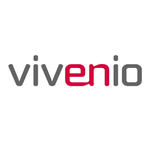Description

Airmeet

GEVME
Comprehensive Overview: Airmeet vs GEVME
Airmeet and GEVME are both platforms designed to facilitate virtual and hybrid events, but they have distinct features and target slightly different markets. Here's a comprehensive overview of each:
Airmeet
a) Primary Functions and Target Markets:
- Primary Functions: Airmeet is a virtual events platform designed to host all sizes of events, from large conferences and trade shows to smaller workshops and networking sessions. Key features include virtual tables for networking, interactive sessions, live and recorded video content, and integration with various tools like CRM and marketing platforms.
- Target Markets: Airmeet primarily targets businesses and organizations looking to host virtual conferences, summits, webinars, and networking events. It is popular among corporations, educational institutions, and community organizations aiming to connect audiences at scale.
b) Market Share and User Base:
- Airmeet is considered a strong player in the virtual events market, especially in the wake of increased demand for online meeting solutions. While it may not have the market presence of giants like Zoom or Microsoft Teams, it has carved out a niche with its focus on large-scale events and networking capabilities.
c) Key Differentiating Factors:
- Networking Features: Airmeet's unique virtual table setup allows attendees to engage in smaller groups, simulating the networking experience of an in-person event.
- Ease of Use: The platform is known for its user-friendly interface, making it accessible for both organizers and attendees.
- Customization and Branding: Airmeet offers extensive customization options for events, enabling brands to infuse their identity throughout the virtual experience.
GEVME (Global Enterprise Virtual Meeting & Event)
a) Primary Functions and Target Markets:
- Primary Functions: GEVME provides a comprehensive suite for event management, including virtual and hybrid event solutions. Its features encompass event registration, marketing, ticketing, virtual exhibition booths, live streaming, and analytics.
- Target Markets: GEVME primarily serves event organizers, ranging from corporate event planners to trade show coordinators and professional conference organizers. It is also used by government organizations for public engagements.
b) Market Share and User Base:
- GEVME may not be as widely recognized as platforms like Cvent or Eventbrite but has a strong presence in the Asia-Pacific region. It supports various large-scale events, giving it a specialized but notable user base.
c) Key Differentiating Factors:
- Comprehensive Event Management: Unlike some platforms focused solely on virtual aspects, GEVME offers end-to-end solutions for managing both online and physical elements of events.
- Data and Insights: The platform provides robust analytics and reporting tools, enabling organizers to derive insights and measure event success.
- Flexibility and Scalability: GEVME is designed to accommodate a wide range of event types and sizes, offering customization and scalability as key attributes.
Comparison Summary:
- Functionality and Focus: While both platforms facilitate virtual events, Airmeet places a strong emphasis on networking and interaction, while GEVME provides a broader spectrum of event management services including physical components.
- User Experience: Airmeet is celebrated for its intuitive interface and engaging attendee experience. In contrast, GEVME offers detailed customization and comprehensive management tools, appealing to organizers needing a full-suite solution.
- Market Reach: Airmeet is recognized globally, but GEVME has a particularly strong footprint in the Asia-Pacific market.
- Technology and Integration: Both platforms offer integrations, but Airmeet excels in seamless CRM and marketing tool compatibility, whereas GEVME is known for its holistic event tracking and analytics capabilities.
In conclusion, organizations should choose between Airmeet and GEVME based on their specific event needs, focusing on interaction versus comprehensive event management.
Contact Info

Year founded :
2019
+1 541-745-8254
Not Available
United States
http://www.linkedin.com/company/airmeetcom

Year founded :
2013
+65 6592 5188
Not Available
Singapore
http://www.linkedin.com/company/gevme
Feature Similarity Breakdown: Airmeet, GEVME
Airmeet and GEVME are both virtual event platforms offering a range of features to host, manage, and engage attendees in online and hybrid events. Below is a breakdown of feature similarities and differences between the two:
a) Core Features in Common:
-
Event Registration and Ticketing:
- Both platforms offer tools for event registration and ticketing, allowing organizers to manage attendees effectively.
-
Live Streaming and Broadcasting:
- They provide live streaming capabilities to broadcast sessions, panels, and other event activities to a broad audience.
-
Networking Opportunities:
- In-built networking features such as chat functionalities and breakout rooms enable attendees to connect and interact during the event.
-
Engagement Tools:
- Interactive features like polls, Q&A sessions, and surveys are standard, helping to engage participants throughout the event.
-
Analytics and Reporting:
- Robust analytics tools are offered by both platforms to track attendee engagement and gather insights on event performance.
-
Virtual Booths and Exhibitions:
- Support for virtual booths, enabling sponsors and exhibitors to showcase their products or services.
b) User Interface Comparison:
-
Airmeet:
- Airmeet’s interface is known for being modern, user-friendly, and highly customizable, providing an immersive experience for both organizers and attendees. The platform uses a 'social lounge' concept that visually resembles a physical event space.
- The layout is clean with intuitive navigation that makes event management straightforward, catering to both small and large scale events.
-
GEVME:
- GEVME offers a modular interface, allowing event organizers to tailor the platform to their specific needs. It is also relatively user-friendly but can be more specialized depending on the customizations implemented.
- The interface provides seamless integration with its various modules and can accommodate a wide array of event formats and sizes.
c) Unique Features:
-
Airmeet:
- Social Lounge: Airmeet’s standout feature is the social lounge which simulates physical networking. It uses virtual tables where attendees can join discussions, mimicking the spontaneous interactions of in-person events.
- Speed Networking: Offers a feature for speed networking, where attendees can be randomly paired for short video chats, enhancing networking opportunities.
-
GEVME:
- Advanced Email Marketing Tools: GEVME provides specialized tools for email marketing within the platform, enabling detailed customization and automation of communication with attendees.
- Customized Virtual Environments: Offers the ability to create highly customized virtual environments that reflect the theme or branding of the event, going beyond standard layouts.
In conclusion, while Airmeet and GEVME share several core features for managing virtual events, each platform has unique elements that may better suit different types of events or organizational needs. Users should consider their specific event requirements when choosing between the two.
Features

Not Available

Not Available
Best Fit Use Cases: Airmeet, GEVME
Airmeet Use Cases:
a) For What Types of Businesses or Projects is Airmeet the Best Choice?
Airmeet is best suited for organizations that prioritize interactivity and engagement in their virtual events. This platform excels in creating webinar experiences, virtual networking events, and hybrid conferences with a focus on audience interaction. Airmeet is ideal for:
- Educational Institutions: Offering webinars, virtual classrooms, and interactive workshops.
- Corporate Events: Companies looking to hold town halls, internal training sessions, or global team meetings.
- Professional Associations: For hosting conferences, annual general meetings (AGMs), and industry-specific symposiums.
- Startup Events: Facilitates pitching sessions, networking events, and product launches that require high engagement levels.
- Community Building: Suitable for non-profits or social organizations conducting forums and discussions with audience participation.
GEVME Use Cases:
b) In What Scenarios Would GEVME be the Preferred Option?
GEVME is tailored for large-scale event management, providing comprehensive tools to manage complex logistics and sophisticated attendee experiences. This platform is perfect for:
- Government Events: Ideal for organizing public sector events, governmental assemblies, and policy forums with secure access and multi-lingual support.
- Exhibitions and Trade Shows: Facilitates the management of large-scale expos, including exhibitor management and floor plan planning.
- Large Corporations: Companies needing integrated solutions for annual conventions, global summits, or client-facing events.
- Event Management Agencies: Agencies that require a robust platform to manage multiple clients and large events simultaneously.
- Hybrid Events: Companies or organizations focusing on a blend of physical and virtual event elements, needing seamless integration for both audiences.
Catering to Different Industry Verticals or Company Sizes:
-
Airmeet:
- Industry Verticals: Education, technology, media, startups, and non-profits benefit significantly from Airmeet’s user-friendly interface and engagement tools.
- Company Sizes: While scalable, Airmeet primarily caters to small to medium-sized companies or teams within larger organizations focused on building interactive community experiences.
-
GEVME:
- Industry Verticals: Government, large corporations, event management, and exhibition industries find GEVME efficient due to its comprehensive event management solutions.
- Company Sizes: Best suited for medium to large enterprises and government entities that handle high-volume events with detailed logistical requirements and need for data integration.
Both platforms offer distinct benefits depending on the nature and scope of the event, with Airmeet emphasizing engagement and interaction, and GEVME providing robust event management capabilities for complex scenarios.
Pricing

Pricing Not Available

Pricing Not Available
Metrics History
Metrics History
Comparing teamSize across companies
Conclusion & Final Verdict: Airmeet vs GEVME
To provide a conclusion and final verdict between Airmeet and GEVME, let's consider their offerings, strengths, weaknesses, and value propositions.
Conclusion and Final Verdict
a) Best Overall Value
Determining which product offers the best overall value depends on the specific needs and goals of the user. However, generally speaking, Airmeet may offer better overall value for organizations prioritizing interactive and engaging virtual experiences due to its emphasis on networking and user engagement features. In contrast, GEVME is a robust choice for users seeking a comprehensive event management platform with strong integration capabilities and a focus on data-driven decisions.
b) Pros and Cons
Airmeet:
-
Pros:
- Strong focus on networking and interaction, with features like social lounges and virtual tables.
- User-friendly interface conducive to creating engaging and dynamic virtual events.
- Pricing is competitive, especially for organizations hosting frequent events.
- Good customer support and community engagement.
-
Cons:
- May not have as comprehensive data analytics features compared to some competitors.
- Larger scale events might face scalability challenges.
- Limited integration options with some third-party applications.
GEVME:
-
Pros:
- Comprehensive suite for virtual, hybrid, and in-person events, offering tools for all stages of event planning and execution.
- Strong emphasis on data and analytics to guide event strategy.
- Highly customizable with a robust API and integration options.
- Good scalability for diverse event sizes.
-
Cons:
- The learning curve could be steep for users unfamiliar with comprehensive management software.
- Could be more expensive, depending on the available features and the scale of the event.
- May not offer the same level of interactive features focused solely on participant networking compared to Airmeet.
c) Recommendations for Users
-
Identify Key Priorities: Users should define what aspects of event management or virtual hosting are most critical for their needs. Those prioritizing interaction and participant engagement may lean towards Airmeet, while data-driven planning and comprehensive event logistics lean towards GEVME.
-
Consider Event Scale and Frequency: For smaller, frequent events focused on community and interaction, Airmeet can be more cost-effective. For large-scale and multifaceted events, GEVME provides a more robust platform for managing complexity.
-
Evaluate Budget Constraints: Assess your budget in relation to each platform's pricing model and determine the most cost-effective option based on your event requirements.
-
Test Both Platforms: If possible, make use of any trial or demo versions of both Airmeet and GEVME to experience their functionalities first-hand. Practical use can often reveal preferences not immediately apparent.
-
Integration Needs: Consider existing tools and technologies within your organization that need to integrate with the event platform; choose based on compatibility.
By carefully evaluating these considerations, users can make more informed decisions aligned with their specific event management needs and goals.
Add to compare
Add similar companies




